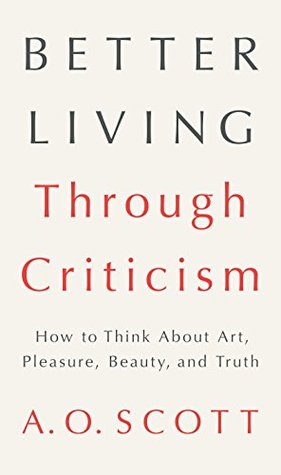More on this book
Community
Kindle Notes & Highlights
by
A.O. Scott
Started reading
March 8, 2016
“The past,” according to T. S. Eliot, is “altered by the present as much as the present is directed by the past.”
It is always the Age of Iron, and the Golden Age is always behind us, giving off a luster that illuminates the terminal shabbiness of our present condition.
Taste, we assume, is innate, reflexive, immediate, involuntary, but we also speak of it as something to be acquired. It is a private, subjective matter, a badge of individual sovereignty, but at the same time a collectively held property, bundling us into clubs, cults, communities, and sociological stereotypes.
Do you know, somehow, in advance? Do you like what you like because of who you are? Or is it the sum of your likes and dislikes that makes you who you are?
The human presence is a powerful aspect of a great deal of art; it is what we perceive in the smile of the Mona Lisa, in the body and voice of an operatic diva in full cry, in larger-than-life close-ups of movie stars, in the whispering lines of poems. Beyond this presence, we infer (or invent) a special kind of attention, an impossible and therefore especially potent form of communication.


